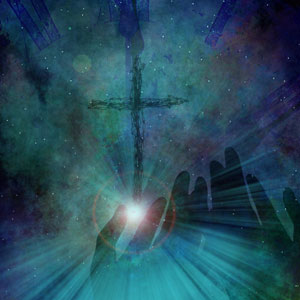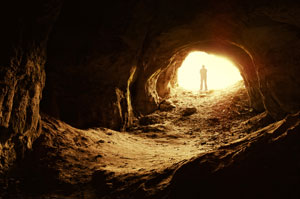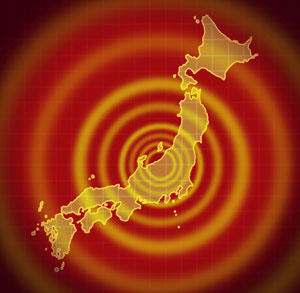Contributed by John Wertz, Blacksburg, VA
Warm-up Question
Can you think of something that you would describe as a miracle?
It’s a Miracle!
On Good Friday, a Navy fighter jet lifted off from a base in Virginia Beach, Virginia. The jet suffered a severe mechanical. The pilots tried to return to the base, but it quickly became apparent that they were in trouble. After a short flight, the jet crashed into an apartment complex and destroyed over 40 units. Amazingly, no one was killed.
According to witnesses and experts, several factors combined to prevent a larger tragedy. The pilots managed to dump fuel which helped prevent a larger fire. They waited until the last possible moment to eject from the plane so they could try and guide the plane as long as possible. The plane hit an empty courtyard and because the accident occurred in the middle of the day, most people were not home at the time of the crash. After the accident, people on the ground were able to pull the pilots away from the flames to prevent them from suffering further injury. A total of seven people were hurt, but all of them were out of the hospital within two days.
The response from leaders in the area was clear. According to the Associate Press article “Virginia Beach Mayor Will Sessoms took to Twitter on Saturday to celebrate the fact no lives were lost, calling it a “Good Friday miracle.” Adm. John C. Harvey, commander of U.S. Fleet Forces, said he was “quite surprised, to be honest”, that no one had died, calling it an “amazing miracle.” Gov. Bob McDonnell told The Virginian-Pilot newspaper that the lack of loss of human life was “an act of divine providence.”
Discussion Questions
- The leaders in the area clearly viewed the fact that no one was killed as a miracle. Do you agree? Why or why not?
- How would you define a miracle?
Scripture Texts (NRSV) for Sunday, April 22, 2012 (Third Sunday of Easter)
(Text links are to Oremus Bible Browser. Oremus Bible Browser is not affiliated with or supported by the Evangelical Lutheran Church in America. You can find the calendar of readings for Year C at Lectionary Readings.)
For lectionary humor and insight, check the weekly comic Agnus Day.
Gospel Reflection
 Mary Magdalene, Joanna, Mary the mother of James and the other women returned and announced the good news. The tomb was empty. Jesus had risen from the dead. Peter ran to see the empty tomb for himself, but he didn’t see the angels or risen Lord. The disciples on the road to Emmaus returned and shared their encounter with Jesus, but hearing about something miraculous is not the same as experiencing it yourself. So when Jesus appeared to the disciples, it should be no surprise that the disciples were startled and terrified—or that they initially believed that Jesus is a ghost.
Mary Magdalene, Joanna, Mary the mother of James and the other women returned and announced the good news. The tomb was empty. Jesus had risen from the dead. Peter ran to see the empty tomb for himself, but he didn’t see the angels or risen Lord. The disciples on the road to Emmaus returned and shared their encounter with Jesus, but hearing about something miraculous is not the same as experiencing it yourself. So when Jesus appeared to the disciples, it should be no surprise that the disciples were startled and terrified—or that they initially believed that Jesus is a ghost.
The disciples are trying to make sense of this miraculous event. Trying to understand how the horrible death they witnessed on Friday night could be overcome. Trying to understand how God could accomplish something so miraculous. Encountering Jesus’ ghost would be a little easier to believe, but after touching and seeing his wounds and sharing a meal with him, the disciples are convinced that Jesus has risen from the dead. It’s a miracle! Christ’s presence moves them from fear to acceptance, from confusion to clarity.
Miracles, by definition, are occurrences that defy a rational explanation, but for the disciples, the miracle of the Resurrection offered clarity and brought understanding. Jesus’ resurrection makes it clear that God’s power is greater than the power of death. Jesus’ resurrection makes it clear that God, through Jesus, is on a mission to love, bless and forgive the whole world. Jesus’ resurrection makes it clear that as “witnesses of these things”(Lk 24:48), the disciples are called to go and share this miraculous good news with the world.
In this Easter season, we, like the disciples, hear the amazing, miraculous news of the Resurrection. Like them, we may have moments of doubt and uncertainty. This truly is an amazing story and although you and I may not be able to touch Jesus’ wounds or watch him eat a piece of fish in person, we can still encounter the risen Jesus today. We encounter Jesus through the story of what God has done and is doing for God’s people. We encounter Jesus as we experience God’s presence through the bread and wine of communion and as we are surrounded by the community of God’s people. We encounter Jesus as we hear God’s Word through the story of the scriptures. As we, like the disciples, encounter Jesus we can believe the miracle of the tomb empty, receive forgiveness of sin, and rejoice in the hope that thanks to the resurrection we have the promise of eternal life with God.
Discussion Questions
- How do you think you would have reacted if you had been in the room with the disciples?
- What is the first question you would have asked Jesus? How do you think he would have responded?
- How can you be a witness to the resurrection in the world today?
Activity Suggestions
Jesus calls us to be witnesses to the good news of the resurrection. Try one of the following activities this week or develop one that fits your particular community.
- Create favorite scripture passage posters and place them around the church.
- Look in the “Contact” list in your phone and text one person who doesn’t have a church home to invite them to worship or a church event
- Write a handwritten note to someone in the congregation or community who is not able to come to worship
- Give time to a service project as a way of sharing God’s love.
Closing Prayer
Loving God, we give you thanks for the empty tomb and the risen Jesus. Fill us with the joy of your love, help us to know your presence in our lives, and inspire us to be your witnesses, sharing the story of the resurrection and your unbreakable love with those around us. Amen.




